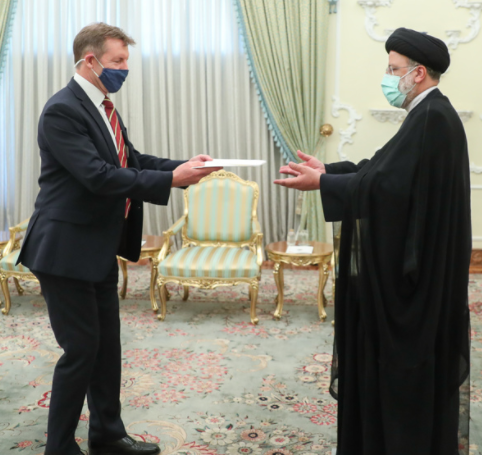October 08, 2021

An executive of China’s Huawei Technologies was freed by Canada September 25 after she admitted hiding the firm’s business deals with Iran that violated US sanctions.
The legal settlement also saw the release of two Canadians held hostage by China, potentially bringing closure to a nearly three-year-long feud embroiling Ottawa, Beijing and Washington.
Meng Wanzhou, Huawei’s chief financial officer and the daughter of the company’s founder, flew immediately to China after her release. She had not been jailed for long in Canada but was allowed free movement around Vancouver where she owns two multimillion dollar mansions wearing an ankle bracelet. The two Canadians had been held in jail in China with the lights in their cells on 24 hours a day.
Her return was carried live on state TV, underscoring the degree to which Beijing has linked her case with Chinese nationalism and its rise as a global economic and political power.
The two Canadians were detained shortly after Canada arrested Meng on a US extradition request in December 2018. Many countries labeled China’s action “hostage politics,” while China accused Ottawa of arbitrary detention.
Meng, 49, reached an agreement with US federal prosecutors that called for fraud charges against her to be dismissed next year. As part of the deal, known as a deferred prosecution agreement, she accepted responsibility for covering up the company’s business dealings in Iran.
While Meng admitted illegal acts to satisfy the terms of the agreement, she did not have to plead guilty as part of the deferred prosecution agreement (which is in reality a deferred dismissal agreement). She admitted to violating the law in an appearance before a Brooklyn-based federal judge in a video link from Vancouver.
The case had caused a huge rift in China-Canada relations, with Beijing launching regular broadsides against the Canadian justice system and banning some imports from the country. In addition, two Canadians convicted in separate drug cases in China were sentenced to death in 2019. A third received a 15-year sentence that was abruptly increased to the death penalty after Meng’s arrest. It wasn’t immediately clear if those prisoners might receive any reprieve.
Huawei is the biggest global supplier of network gear for phone and internet companies and a symbol of China’s progress in becoming a technological world power that has received massive government backing. It has also been a subject of US security and law enforcement concerns, with officials and analysts saying it and other Chinese companies have flouted international rules and norms and stolen technology and vital personal information.
The case against Meng stemmed from a January 2019 indictment from the Justice Department during the administration of President Donald Trump. It accused Huawei of stealing trade secrets and using a Hong Kong shell company called Skycom to sell equipment to Iran in violation of US sanctions. The indictment also charged Meng herself with committing fraud by misleading the HSBC bank about the company’s business dealings in Iran.
As part of the deal with Meng, the Justice Department agreed to dismiss the fraud charges against her in December 2022 exactly four years after her arrest provided that she complies with certain conditions, including not contesting any of the government’s factual allegations.























